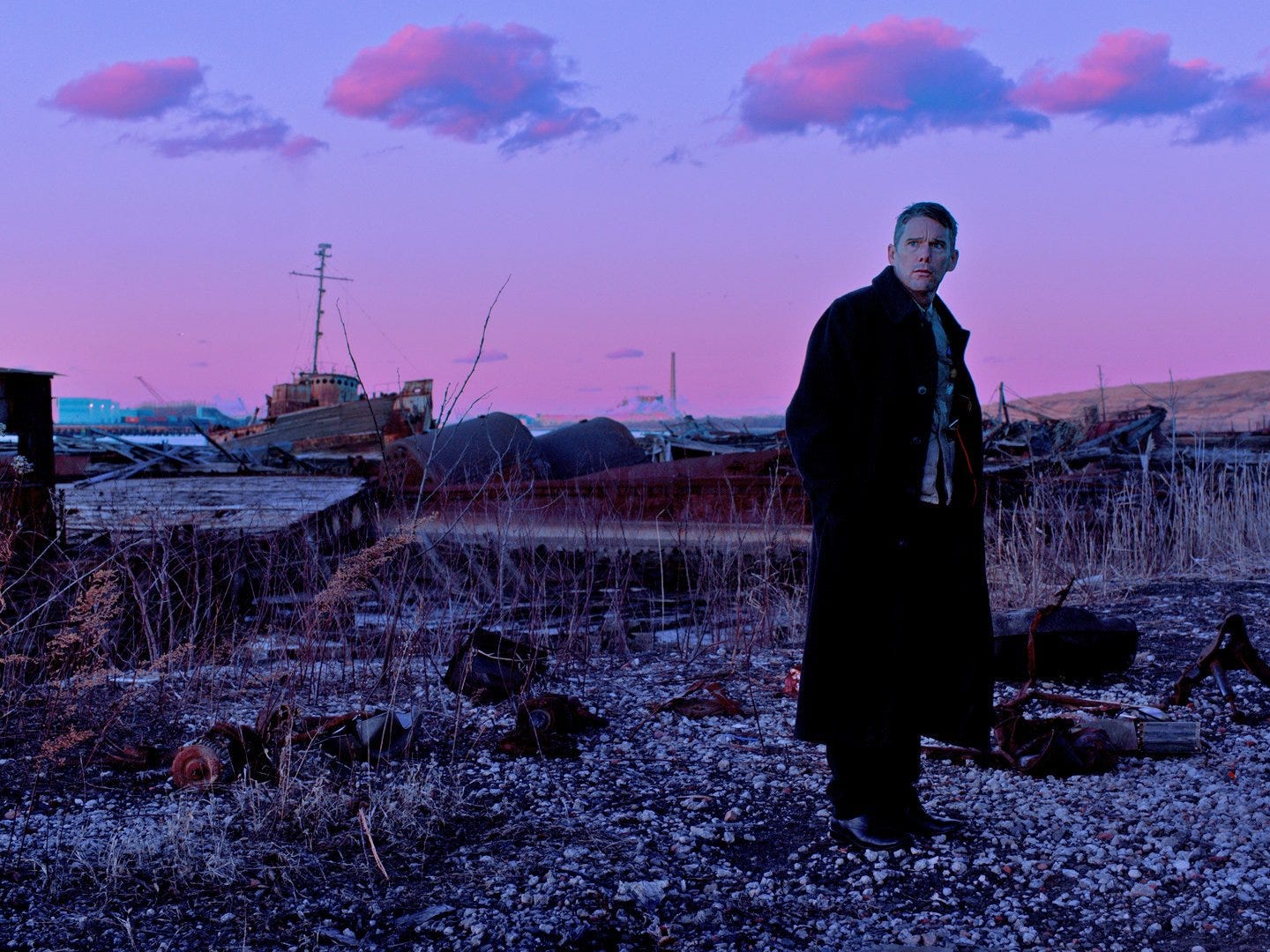First Reformed (2018) - Best of 2000-2019 Part 3
"My Favorite Films of the 21st Century So Far" series Part Three, and the third of the Five I wanted to highlight as the Best of the Best.
—Spoilers Follow—
First Reformed (2018)
Director: Paul Schrader
Writer: Paul Schrader
Cinematographer: Alexander Dynan
Music: Lustmord
“Can God forgive us? For what we have done to this world?” Michael (Philip Ettinger), a troubled young environmental activist, asks Reverend Ernst Toller (Ethan Hawke). The question is rephrased by Toller later on during a contentious meeting with energy-executive and church mega-donor Ed Balq (Michael Gaston). “Will God forgive us?” he asks (and accuses) him, “for what we are doing to his creation?” This rephrasing is vital. The Reverend knows that God can forgive us, but will he? And the question no longer lingers in the past tense, a luxury afforded only to a man like Michael who knew his time was up. But, thanks to Michael, Toller has learned that the church he works for accepted an $85,000 donation from this man whose corporation sits on a list of top polluters. He preaches God’s word at the pleasure of a man whose business is in destroying God’s creation. So the question becomes all-inclusive and accusatory.
Wracked by guilt over the death of his son, eaten alive by cancer, and boozing nightly to expedite the process, Reverend Ernst Toller is one of the most deeply tragic and pitiable figures I’ve seen on film. He no longer feels the presence of God and wants no person to love him. Hidden away in his ascetic chamber writing by candlelight, he even hates himself for his “prideful” and “self-pitying” journal. Mary (Amanda Seyfried), Michael’s pregnant widow, is the only light he allows in his life.
This is a deeply important film. Heavily inspired by Ingmar Bergman’s Winter Light, director and screenwriter Paul Schrader trades the impending doom of nuclear holocaust for the inevitable climate disaster we and all our children must face. Capital will not stop destroying the planet until it’s no longer profitable to do so, and of course by then it will be too late. What can one man do? Disillusioned with the protest movement, Michael turns to anti-natalism, reasoning that bringing a child into a doomed world would be unimaginably cruel. His wife, Mary, shares his worldview but clearly believes that life is a gift to be treasured and so she chooses hope. The jovial Reverend Jeffers (Cedric the Entertainer) looks to trusting in God’s Plan, charitable work, and maintaining a good sense of humor. But Reverend Toller seeks only self-flagellation.
“Some are called for their gregariousness, some are called for their suffering, others are called for their loneliness,” Toller writes, “They are called by God because through the vessel of communication they can reach out and hold beating hearts in their hands. They are called because of their all consuming knowledge of the emptiness of all things that only can be filled by the presence of Our Savior.”
When I saw First Reformed shortly after its release, I felt that this was a movie made specifically for me. I have made arguments identical to those that Michael makes in his counseling by way of spiritual contest with Toller. I have debated with friends and family the ethics of bringing a child into a world I expect to become a nightmare. I felt the torment of the Reverend as he falls down the rabbit hole of big-money, learning of its endless reach, and how we’re all thoughtlessly destroying the beauty around us every day simply through existence. Most people I talk to about this agree, but argue that it’s too big for one man to worry much about and the scientists will probably figure it all out anyway.
Schrader made the decision to shoot this film in what he calls “Transcendental Style,” which is inspired by the works of Ozu, Bresson, and Dreyer. Most films, he asserts, “lean towards you aggressively, with their hands around your throat, trying to grab every second of your imagination.” Films made in the Transcendental Style withhold themselves, they linger, the camera sits still and watches without comment. First Reformed wants you to lean in to what’s happening onscreen, presenting beautifully composed long takes during which you may enter the “mind” of the picture. Having been given time for contemplation, the viewer is compelled to reckon with the themes being presented. Modern themes like climate change and mass pollution alongside ageless themes like our lot in life and impotence in the face of immense destructive powers. The viewer must contemplate the questions raised.
“If you consistently withhold,” explains Schrader, “and now the viewer is leaning towards you, now you have to think in a certain moment, ‘Freedom’. You know, do something unexpected.” And by the end of the film, after the Reverend’s idea of “Freedom” is thwarted, he lets loose a mangled howl into his balled up robes. Returning to self-punishment, he wraps himself tight in barbed wire like a crown of thorns turned straitjacket. As he prepares for suicide, the camera remains tight and composed. It does nothing but present a series of events.
Mary enters the room. Wordlessly, they embrace as the camera begins to swirl around them. Freedom, the Transcendent Moment. As Ernst Toller allows himself to be loved, he moves with a passion and fluidity like never before. The barbed wire either has disappeared or the pain is immaterial.
Paul Schrader doesn’t answer any of the big questions raised in this film, he merely uses it to assert that nobody deserves to suffer and that we must allow ourselves to care and be cared for. That may sound too simple and trite to some. Maybe it is, but it’s also true.




